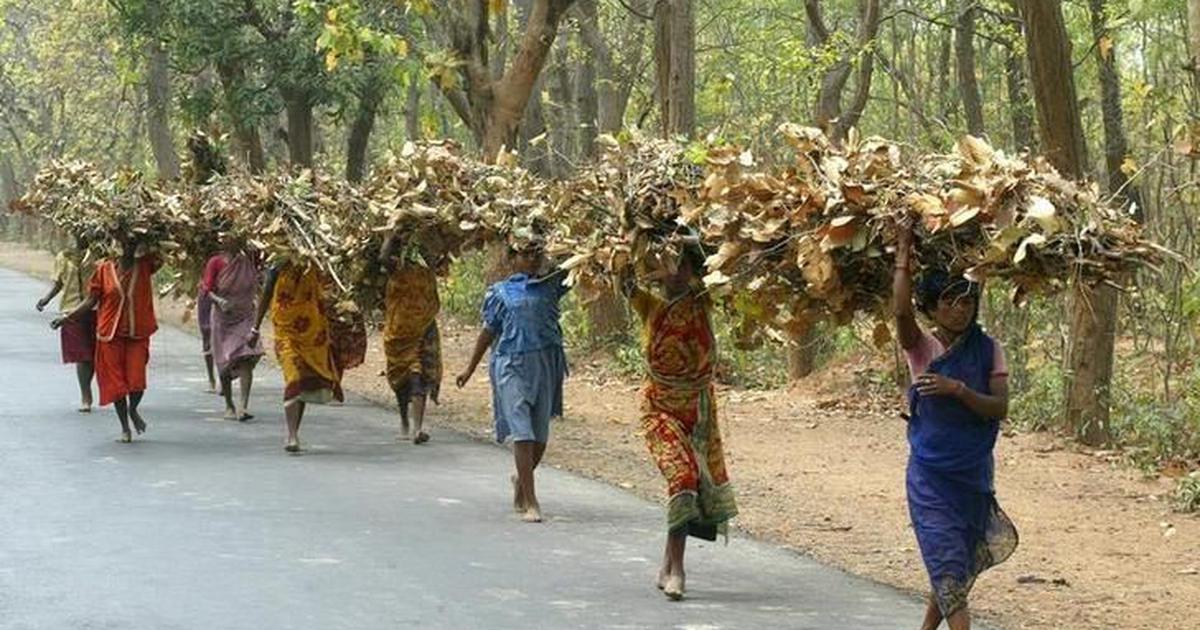In the second PhD session of the LANDac Conference 2021, three PhD researchers presented their work in progress. We learned about slums in Abuja, Nigeria, about forest rights in India, and about the relation between inequalities in soil fertility, gender, and access to subsidies. Each presentation was discussed by an expert from the LANDac network.
Key Takeaways
- To understand politics around slums and urban development in African cities, a historical perspective has much to offer. Historical institutionalism helps to make sense of the development of land governance and urban planning.
- The Forest Rights Act in India has been an important turn in thinking about the rights of original forest dwellers, but involves forms of governmentality that we need to better understand.
- Inequaiities in soil quality intersect with gender inequalities and unequal access to labour and subsidies. In terms of agricultural subsidies, Nigeria and Zambia present two contrasting cases that deserve to be further explored.
Path Dependence and Critical Junctures in the Land Rights and Tenure Security Dynamics of Informal Settlements in Abuja, Nigeria.
Presented by Nuhu Adeiza Ismail, (Wageningen University and Research) and discussed by Femke van Noorloos (Utrecht University).
The dynamics around informal settlements in global south cities are often considered to be messy, complex, and less understood. The Land rights and tenure security of informal settlement dwellers that are fundamental in the dynamics are very complicated, controversial, and often less understood. Ismail argued the need for a retrospective approach to the analysis and understanding of the current dynamics in informal settlements. He used the theoretical framework of historical institutionalism (especially the concepts of path dependence and critical junctures) to explore the historical dynamics around two informal settlements (Mpape and Mabushi slums) of Abuja. his work aims to provide a better understanding to why land rights and tenure security issues in informal settlements of Abuja are so controversial and yet to be resolved 42 years after the creation of Abuja as the new capital city of Nigeria. In addition to the fundamental socio-political and power dynamics in land governance of Abuja, Ismail explains in his study how the 1978 Land Use Act; the 1979 Abuja Master Plan Resettlement recommendations; the massive demolitions of informal settlements between 2000 to 2007; the failed resettlement attempts of Mabushi; and the attempted demolition of Mpape in 2012 represent the critical moments that have defined the current dynamics around the settlements especially the contentious politicking over land rights and tenure security.
The Forest Rights Act (FRA): watershed legislation but failed policy
Presented by Tejendra Pratap Gautam (Indian Institute of Technology Bombay) and discussed by Malovika Pawar (Utrecht University)
Tejendra discusses how, under the colonial regime, tribals (adivasis) were subjected to primitive accumulation by dispossession, displacement, and colonial laws. Their exploitation continued after independence with post-colonial governments paying less attention to tribal upliftment and welfare. In most marginalized social groups, tribals are the most debated and contested social category as a subaltern, for which Spivak argued that “can the subaltern speak?” (Spivak, 1988). However, after deliberation, and lobbying by civil society organizations with the central government, the scheduled tribes and other traditional forest dwellers (Recognition of Rights) Act, 2006, also known as Forest Rights Act (FRA), was enacted by the parliament to undo the historical injustices against the tribals and forest dwellers. Here, the paper reviews the situation of FRA implementation at the national level and explain the asymmetrical implementation through a case study of the district of Gadchiroli, Maharashtra. The facts were gleaned through semi-structural interviews and discussions with key stakeholders involved in the process of FRA implementation.
Soil Inequalities and Their Effects in Sub-Saharan Africa
Presented by Karla Molina Galindo, (University of Edinburgh) and discussed by Gemma van der Haar (Wageningen University)
Karla’s research focuses on soil inequalities in Sub-Saharan Africa and its relations to other cycles of inequality which the same perpetuates. Some of the cycles perpetuated by soil inequalities that are analysed in this research are gender inequalities and fair access to subsidies. This paper compares the two countries of Zambia and Nigeria with the aim of highlighting the different ways in which they have dealt with said inequalities. Gender inequalities are a main point of interest in relation to soil inequalities since female farmers often must deal with less fertile or undesirable land and lack of access to inputs, such as improved seed and fertilizer. Subsidies are closely intertwined with soil inequalities. The aim of these subsidies is to help poor small-scale farmers; however, this is not always the case. In Zambia, it has been found that subsidies are not going to the farmers that need it the most but rather to wealthier farmers. Nigeria is an interesting case when it comes to subsidies since they have resourced technology to help improve the efficiency of subsidies. Karla presented the beginning of her PhD research project and highlighted how the role of gender and subsidies play in soil inequalities and why it is essential to further understand in order to provide practical solutions to small-scale farmers. By identifying and understanding the role that soil inequalities play in relation to other health and social inequalities, her study aims to help providing farmers with managerial solutions that would not only improve their soil and yields but also their quality of life.

